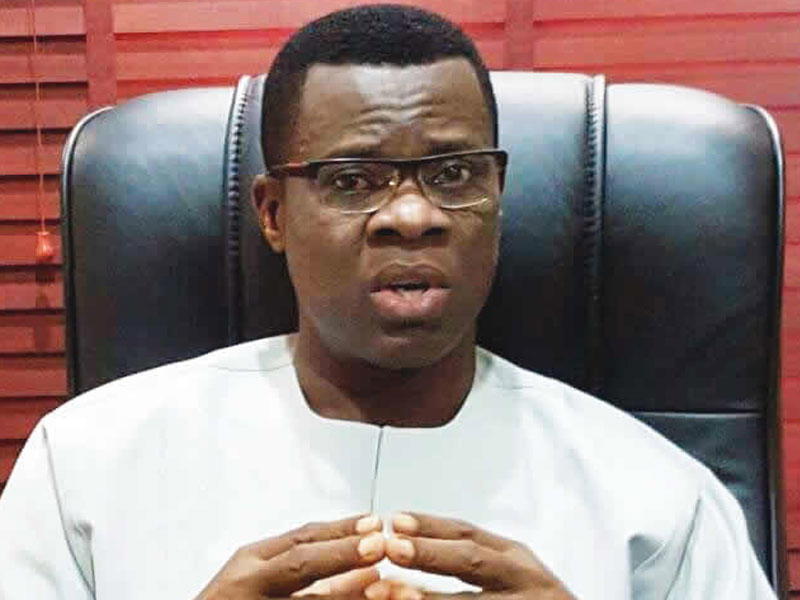By Olufemi Aduwo
The Independent National Electoral Commission (INEC) occupies a pivotal position in Nigeria’s democracy, entrusted with the solemn responsibility of ensuring that the voices of citizens are accurately captured, counted, and respected.
Leadership of this institution should not be a mere procedural formality; it demands a rare combination of integrity, operational competence, and tested experience.
Academic accolades or innovative technology, while valuable, cannot substitute for moral probity and practical expertise.
Since 1959, the electoral body has been led by a succession of chairmen drawn from retired civil servants, the Bench, and the ivory towers — each tasked with safeguarding impartiality and public trust.
Ronald Edward Wraith, the first Chairman and a British citizen, oversaw the 1959 federal elections, laying the foundation for independence.
He was succeeded by Chief Kofo Abayomi and Eyo Esua, who navigated the complexities of the First Republic amid regional tensions.
During the Second Republic, Michael Ani and Justice Victor Ovie-Whiskey conducted elections under military oversight, balancing procedural integrity with political constraints.
Under the military governments of Generals Ibrahim Babangida and Sani Abacha, academics became the preferred appointees. Figures such as Professors Eme Awa, Humphrey Nwosu, and Okon Uya, alongside Barrister Sumner Dagogo-Jack, were entrusted with the Commission’s leadership to lend credibility to the process — though neither Uya nor Dagogo-Jack conducted any elections following the annulment of the 1993 poll.
With the advent of the Fourth Republic, Justice Ephraim Akpata conducted the historic 1999 elections, restoring civilian rule. Dr Abel Guobadia introduced procedural reforms, while Professor Maurice Iwu sought to modernise elections through technology, albeit amid controversy. Professor Attahiru Jega is widely regarded as having set a high standard for transparency, overseeing elections considered largely credible despite imperfections, particularly the tragic circumstances surrounding the death of the Kano State Resident Electoral Commissioner (REC) and his family during the 2015 general election.
In contrast, the tenure of Professor Mahmood Yakubu illustrates the limits of academic distinction without effective operational execution. While Mahmood introduced the Bimodal Voter Accreditation System (BVAS) and the INEC Results Viewing Portal (IReV), the 2023 general elections suffered delays, technical failures, and a rushed presidential result announcement, eroding public trust.
The consensus is that scholarly credentials and technological tools require principled leadership to function effectively.
Integrity and impartiality should remain the hallmarks of effective leadership in the Commission.This is why Mr Mike Igini, a two-term Resident Electoral Commissioner (REC) in Cross River, Edo, Akwa Ibom and electoral intervention duties in other States like lmo, Anambra , Osun and River state. That he was appointed by President Jonathan of PDP (2010) and Buhari of Apc (2017) as the only sole Re-appointed from the eleven states of both south south and south east, exemplifies these qualities.
His bipartisan endorsement demonstrates the confidence that leaders of both major political parties had in his ability to deliver credible elections under intense pressure, resisting all forms of inducement and political interference.
Notably, two professors who manipulated results in Akwa Ibom were prosecuted and are serving prison terms, reflecting his commitment to accountability.
This record makes him a strong candidate for INEC Chairman.
Similarly, Professor Nnenna Oti, former Vice-Chancellor of FUTO, Owerri, demonstrated exemplary integrity by rejecting inducements during the 2023 Abia gubernatorial election. Nigeria does not lack men and women of proven integrity.The challenge lies with political leadership to identify them.
The President should look beyond candidates recommended by politicians and loyalists.
The lessons are unequivocal: Nigeria cannot afford an INEC Chairman whose brilliance in theory masks weaknesses in practice. The next Chairman must have empirically proven integrity and tested competence.
Certificates, titles, or innovation are ancillary, but principled, results-driven leadership is paramount.
As the 2027 general election approaches, the stakes could not be higher. The nation’s democratic survival will be determined not by party slogans, political manoeuvres or technological innovations, but by the character of those entrusted to administer the electoral process.
INEC’s leadership is the linchpin: the Chairman and Commissioners will either safeguard the will of the people or allow partisanship, corruption, and incompetence to erode the foundations of democracy.
President Tinubu, and all custodians of this critical process, must recognise that the selection of INEC’s leadership is a civic responsibility, not merely a political prerogative.
Choosing individuals of tested character will determine whether the 2027 elections restore public confidence, strengthen democratic institutions and reaffirm Nigeria’s commitment to the rule of law. Anything less risks repeating the mismanagement, public distrust, and reputational damage witnessed in the past.
Aduwo is Permanent Representative, Centre for Convention on Democratic Integrity Ltd/Gte (CCDI) to the ECOSOC/United Nations olufemi.aduwo@ccdiltd.org | Tel. +2348087047173
olufemi.aduwo@ccdiltd.org | Tel. +2348087047173
Note: CCDI is a non-profit registered in Nigeria and incorporated in the State of Maryland, USA. It has held United Nations ECOSOC Consultative Status since 2017
The post Bipartisan confidence in Mike Igini: A rare asset for Nigeria’s democracy appeared first on Vanguard News.

